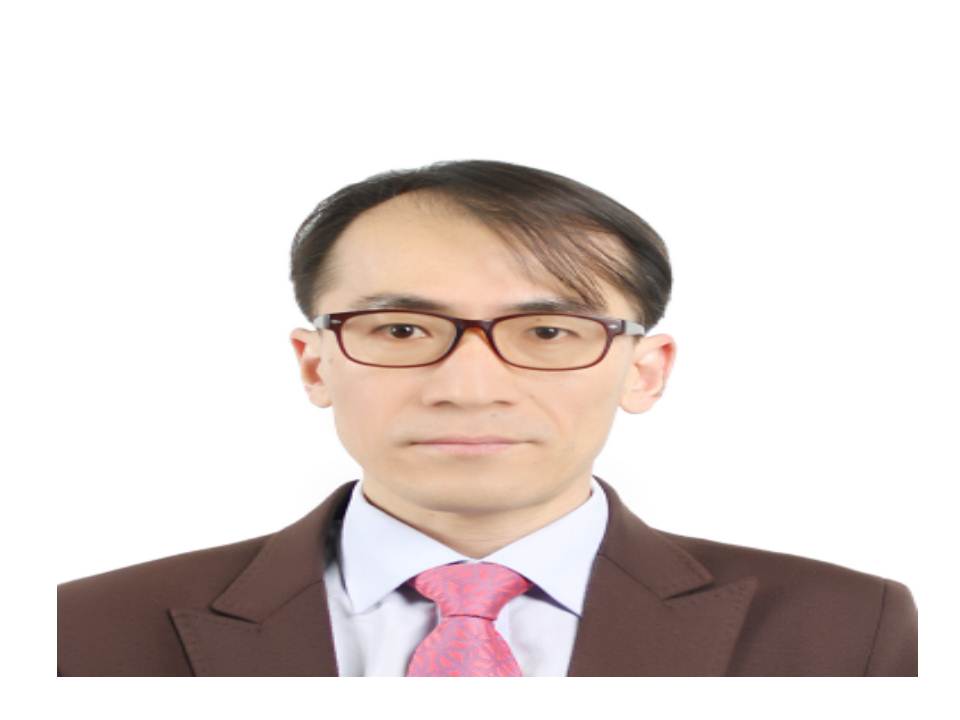What does the word ‘Muslim’ bring to mind? For most people, the word ‘Muslim’ is often related to Islamic extremism. For instance, when the word ‘Muslim’ is searched for in Google, words describing Islamic extremism, such as ‘Taliban’, or ‘IS’ pop up as related search words. Indeed, these Islamic extremist groups are notorious for carrying out many inhumane crimes. With the most recent event of the Paris terror attack, kidnapping and the imprisonment of Nigerian teenage girls, anti-Muslim sentiment, known as ‘Islamophobia’ has been gaining popularity throughout SNS and the media.
|
 |
| Image by algharaf |
What is Islamophobia?
The term ‘Islamophobia’ was first introduced to the public with the 1997 publication of a report by the Runnymede Trust, a UK’s independent race equality think tank. According to the Runnymede Trust, the term ‘islamophobia’ expresses negative emotions, such as fear, hatred, and dread, directed at Islam and Muslims in general. Naturally, people with islamophobia have much prejudice against Muslims and even against non-Muslims. In many cases, people are identified as a Muslim according to their nationality or physical appearance, and too often, all Muslims are considered terrorists or potential-terrorists.
In spite of its popularity, the concept of islamophobia wasn’t recognized by society until the 9.11 terror attack in 2001. When 2,996 innocent civilians perished, islamophobia spread like wildfire, especially in Western countries. Then, the second wave of islamophobia arrived with the mass migration of Muslims all over the world, due to the destabilization of the Middle-East. This phenomenon was more distinct in European countries, where most of the Muslim migration was concentrated. After settling in, many Muslim immigrants refused to embrace the local culture nor tried to integrate into the local society, which led to a popularization of islamophobia. Rumors of Muslim criminal gang formation started to spread across the European continent, only intensifying islamophobia. For example, in Berlin, a teenage girl was allegedly kidnaped and raped by three Muslim migrants, on January 31. However, during the subsequent police investigation, she confessed that she had lied. Events similar to this, where Muslims are blamed without any solid proof repeated, especially with the support of islamophobic groups.
Recently, islamophobia has surpassed its original form of resentment and became a proper political movement. PEGIDA, Patriotic Europeans against the Islamisation of the Occident, is one of the biggest political movement with islamophobic ideologies. Founded on December 19th, 2014, PEGIDA started as a German anti-Islamic political movement and has now became a considerable political party recognized all across Europe. PEGIDA also holds weekly anti-Islam protests on Monday and demands a reform of the immigration law. Its protestation has gained a great success. For instance, at one of the biggest PEGIDA protests, over 25,000 supporters participated and in the German city of Dresden, they gained 9.6% of the votes in the mayor election. Furthermore, public opinion polls show that 48% of West Germany and 53% in East Germany are in favor of a PEGIDA protest. However, this political movement also has been strongly criticized for their controversial slogan and the racist behavior of Lutz Bachmann, the founder and leader of PEGIDA. Immigrants were often insulted as ‘trash’, scumbags’ or ‘animals’ during protests.
In some regions, islamophobia has resulted in more violent forms of hate-crimes. After the Jihadist attack, according to The Guardian and Scotland Yard, there has been a 75% increase in hate-crimes against Muslims living in Europe or in the US. Also, many non-extremist Muslims are becoming victims of discrimination and prejudice. For instance, Ahmed Mohamed, a 14 years old Muslim boy living in Texas, was arrested on suspicion of bringing an explosive device to school, which was, in fact, a homemade clock. Despite being an underage student, the ‘clock boy’ was taken into custody by police, sent to a juvenile detention facility and remained alienated from his parents throughout the investigation. This event resulted in social outrage and accusations have been made that Ahmed was singled out because of his race, national origin and religion. However, the ‘clock boy’ was not the first victim of islamophobia nor will he be the last.
|
 |
International Efforts against Islamophobia
In response to the propagation of islamophobia, Muslims have been taking matters into their own hand by standing against terrorism. Muslim voices are being raised in condemnation of the inhumane acts of extremist Islamists. Organizations such as CAIR, the Council on American-Islamic Relations, have denounced the terror attacks of IS (Islamic State) and are demanding that all irrational and radical terror attacks enacted under the name of Islam be stopped. Many Muslims have also joined the fight against extremists, and according to the ‘Muslim-American Terrorism’ study conducted by Duke University, the number of terrorist suspects arrested by Muslims outnumbers the arrests made by the US Government.
Furthermore, efforts are being made to establish or reestablish communication between the Muslim society and local society. As an example ‘Ask a Muslim’ is a campaign held by Muslim college students in Roxbury Community College, US. To prevent the spread of islamophobia on campus and to communicate with non-Muslims students, Muslims students invited non-Muslim students to ask any question concerning Islam. When other students came to ask questions, they would give them a small pie as a gratitude of taking a step closer to the creation of a communication- friendly environment.
Non-Muslim societies have also joined in this battle against islamophobia. In international politics, islamophobia is considered an offence. For instance, the UN has prohibited any islamophobic activities in public places, and even former Secretary of State of US, Colin Powell, denounced the islamophobic atmosphere inside the Republican Party.
Non-governmental organizations and individuals are also actively participating in the anti-islamophobia movement. After the Ottawa shooting in October 2014, where a Muslim attacked Parliament Hill, killing two and injuring three3 people, a mosque was vandalized with insults and graffiti scribbled on the walls. As a response, local citizens and an NGO gathered voluntarily and cleaned the obscenities from the wall and replaced them with the sentence ‘This is your home’.
|
 |
| Image by RIDZDESIGN |
Islamophobia in Korea
Geographically and culturally separated from Islam, Korea has yet to face the problem of terror attacks from Islamic extremists and, nor has islamophobia gained as much popularity in South Korea as in Western countries. In the past, the public was oblivious of the matter and its sentiment towards Muslims was more sympathetic rather than hatred or fear. However, ongoing inhumane terror attacks changed Korean society and politics to become more hostile to Islam.
In order to learn more and to ask for some expert opinion about the current situation in South Korea regarding Islamophobia, The Inha Times met with the deputy general manager of the Seoul Central Masjid, a mosque located in Itaewon. By request of the Seoul Central Masjid, the deputy general manager will be referred to by the false name “Mr. Kim.”
The Inha Times (IT): As a Korean Muslims living in Korea, have you ever encountered any difficulties?
Mr. Park: Yes, when I first converted to Islam it was quite hard to keep up with my work life as I couldn’t join frequent get-together dinners because of my halal regime. Also, if the meeting overlapped with my prayer time, I was forced to leave the meeting to pray, even in the middle of a meeting. Yet, generally speaking, I don’t feel very different from others. Just like any other person, I’m the same human being who was born in Korea and still lives in Korea.
IT: As you said, in Korean working society, Muslims are still very rare and remain alien. How can it be improved?
Mr. Park: Most important of all, we, Koreans need to make more efforts to really understand and study each other’s culture and religion. For instance, Korean education contains incorrect information about Islam. They say Mohamed created Islam even though he’s just a prophet, and they use the term “Allah God” even the word “Allah” means God. Therefore, we need to improve our educational curriculum and teach youngsters to respect and really understand other cultures or religions.
IT: Working as a deputy general manager at the Seoul Central Masjid, have you ever experienced religious confrontation?
Mr. Park: Yes, in fact, there has always been religious opposition against Islam. There’s often Christians who come to manifest against Muslims or to pray against Islam in front of the mosque. In such cases, we ask them politely to leave our mosque.
In order to learn more deeply and to ask for some expert opinion about the current situation in South Korea regarding Islamophobia, The Inha Times also interviewed Sung Il Kwang, a representative of the Center of Middle Eastern Studies.
|
 |
| Sung Il Kwang, a representative of the Center of Middle Eastern Studies. |
The Inha Times (IT): What kind of research is being conducted by the Center of Middle Eastern Studies?
Sung Il Kwang: The Center for Middle Eastern Studies of Konkuk University is currently providing the National Research Foundation of Korea (NRFK) with a foundation for studying Israel and the production of an online dictionary of Jewish studies terminology. Personally, I’m conducting a research on Hebrew literature, bibliology, the Talmud, modern Israeli politics, Middle East studies and many other subjects.
IT: In many countries, many Islamic communities are notoriously antisocial and are blamed for causing Islamophobia. How are the Islamic communities in Korea?
Sung Il Kwang: Currently, in Korea, there are around 200 thousand foreign Muslims and 35 thousand Korean Muslims, with 15 mosques, and 60 praying centers. We don’t know for sure what kind of communities or organizations are being formed by Muslims, but Korea is widely known to be a target of missionary work because of its immense Christian population and absence of anti-Islamic laws. For example, when you look at the many events held by the Korea Seoul Central Masjid (name of the mosque), the goal of these events is to propagate their religion.
IT: Is there Islamophobia in Korea?
Sung Il Kwang: Some Christian forces in South Korea show islamophobic tendencies. For example, they actively oppose halal food processing in Iksan City and the construction of an Islamic University. They can’t be stopped if they act inside the limits permitted by the law, but this unilateral rejection of Islam, caused by misunderstanding and ignorance, can be viewed as anti-Islamic. Therefore, it’s important to derive a social consensus through sufficient discussion and debate.
IT: What kind of efforts are needed to create a society in which Muslims and Koreans can coexist? What improvements need to be made?
Sung Il Kwang: Because of the rise of IS and many recent terror attacks by Islamic extremist groups, the reputation of Islam has drastically worsened. For instance, the construction of halal food processing complexes in Iksan City, Jeonbuk Province, has become controversial because of Christian opposition. It’s important to give the public objective information about Muslims, as soon as possible. Most of all, the difference between Islam and Islamic extremism should be distinguished and the fact that not all Muslims follow or worship Allah is extremist should be emphasized.
IT: As you said, the difference between Islam and Islamic extremism should be distinguished. However, there are some people arguing that the Korean media has not been making enough effort to inform the public of these facts. What’s your perspective on this matter?
Sung Il Kwang: For now, it does seem like there’s no evident solution. It’s true that after the recent terrorist attacks, the image of Islam continues to worsen. However, there are people, such as Prof. Moon Chung-in of the Joongang Daily, who argues that the difference between ordinary Muslims and extremist Muslims should be distinguished. Holding a seminar where discussions between experts and the general public can be promoted or giving public lectures and writing about them could be other methods to improve the situation.
IT: Finally, there are some critics that argue that Korean society lacks discussion on the subject of Muslim. Are these critics right?
Sung Il Kwang: Indeed, no attempt has been made to organize such discussions. Yet, it’s important to inform the locals and seek a solution with the many Christian groups who oppose Muslim. For example, the matter of the halal food processing complex should be taken to a public hearing to explain transparently how the food complex is to be organized and how they plan to settle in. Also, Christian groups need to be more reasonable regarding on Muslim matters. According to their current argument, every single foreign Muslim staying in Korea will have no choice but to return to their birthplace.
As a terror free country, Korea has been neglecting the conflict between the non-Islamic world and Islamic extremists. However, the Muslim population is growing at the considerable rate of 1.8% per year, which is faster than the world population growth rate of 1.1% per year. At this rate of growth, immigration and the rise of the Muslim countries in East-Asia is an inevitable future. Hence, Korean society and the government must recognize the fact that South Korea is no longer free of Islamic extremist influence and should break away from the current fear and prejudice towards Islam and study Islam just as it is.
조상현 jeremycho318@gmail.com
<저작권자 © 인하프레스, 무단 전재 및 재배포 금지>

![[보도] 제43대 총학생회 후보자 공청회 개최돼](/news/photo/202404/11686_5015_2626.png) [보도] 제43대 총학생회 후보자 공청회 개최돼
[보도] 제43대 총학생회 후보자 공청회 개최돼
![[보도] 제43대 총학생회 후보자 공청회 개최돼](/news/thumbnail/202404/11686_5015_2626_v150.jpg)
![[보도] 총학생회장 선거 열려···학생사회 대표자는?](/news/thumbnail/202403/11668_5014_266_v150.jpg)
![[보도] 무전공·계열제 논의···학생은 어디에?](/news/thumbnail/202403/11666_5011_2238_v150.jpg)
![[보도] 인하 70돌, 다양한 행사 이어져](/news/thumbnail/202403/11663_5009_165_v150.jpg)
